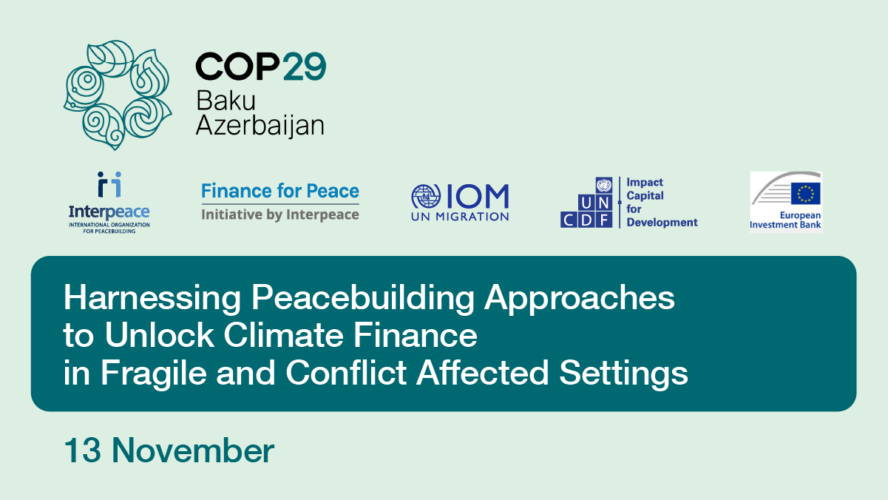The COP28 Declaration on Climate, Relief, Recovery and Peace focuses on advancing and concretizing financial support for climate resilience in conflict-affected and fragile settings (FCS). Conflict-affected areas bear the brunt of climate risks, and annual SDG and climate investment needs in developing countries are estimated at $4.5 trillion and $1.5 trillion respectively. Yet, only 20 to 25% of these needs are funded, and development finance is providing and mobilising less than 6% of the rate required.
This is due to the fact that many vertical climate funds cannot execute their funds due to conflict and fragility. Moreover, multilateral climate funds rarely, if ever, fully incorporate conflict assessment measures throughout project cycle, in spite of the fact that peacebuilding is key in ensuring the bankability and success of mitigation and adaptation projects. The peacebuilding community has long understood how climate change fuels resource conflict, adversely affecting lives, livelihoods, and essential systems like water, food, and health. Climate change is inherently political and can often catalyse wider social, economic, and political tensions.
The launch of the Baku Climate and Peace Action Hub provides an invaluable opportunity to drive integrated approaches that unlock greater climate action and finance in fragile and conflict-affected countries. The panel discussion will explore actionable strategies for integrating conflict-sensitive approaches in the design, allocation, and management of climate finance, to ensure that climate finance not only contributes to environmental sustainability but also fosters peace and resilience in FCS. Understanding how to mobilize finance at scale, effectively reach the most vulnerable, and enhance risk appetite is crucial for supporting peace and sustainable development in FCS more effectively.
Moderator: Daniel Hyslop, Head of Research and Senior Peacebuilding Advisor, Interpeace
Speakers:
- Nick Bishop, Disaster Risk Reduction Lead, IOM - UN Migration
- Kawtar Zerouali, Deputy Director, Nature Assets Team (NAT), United Nations Capital Development Fund
- Marko Davila, Senior Social Development Specialist (Fragility and Conflict), Environment, Climate & Social Office, European Investment Bank

